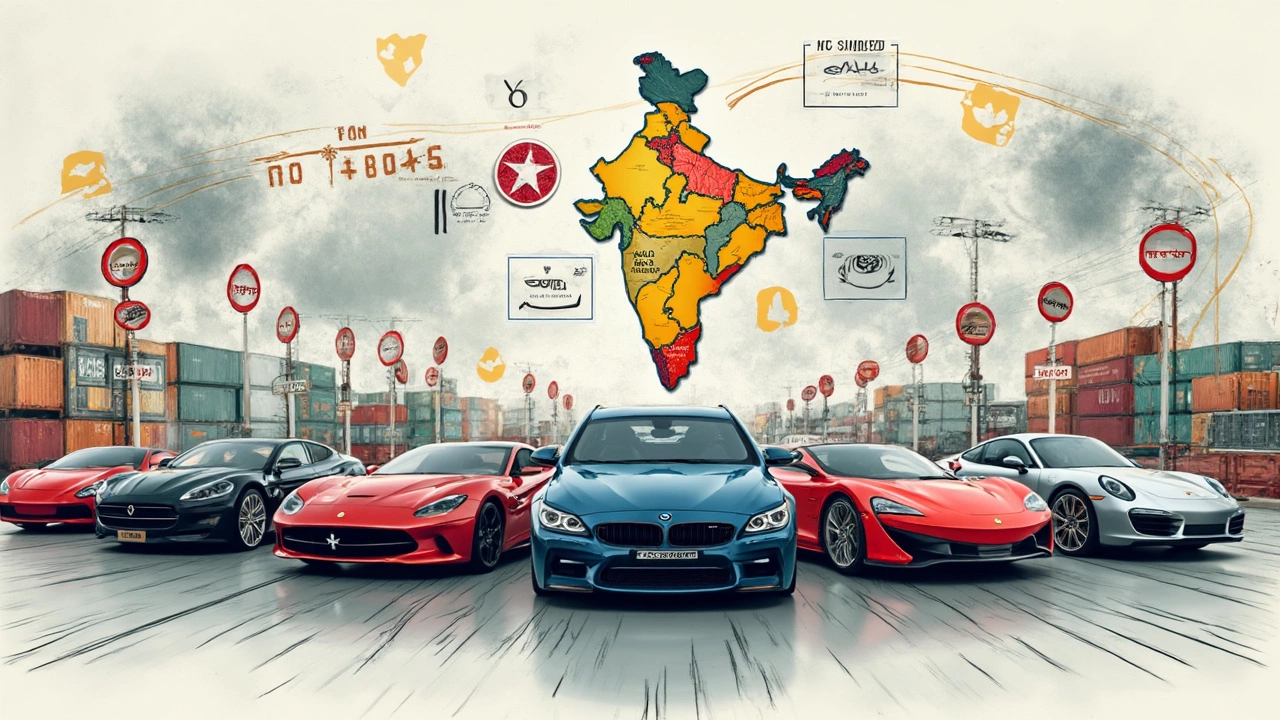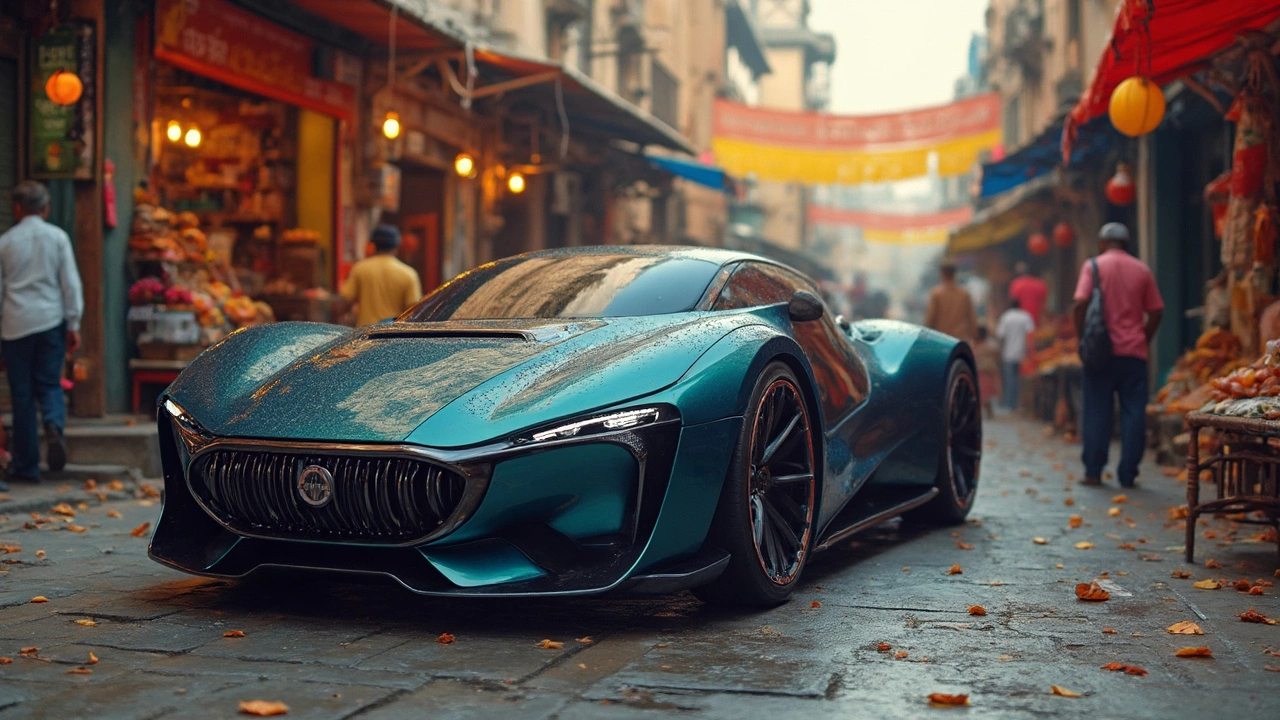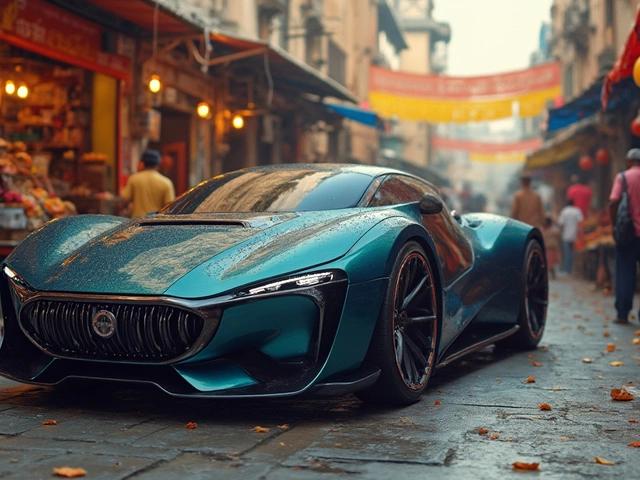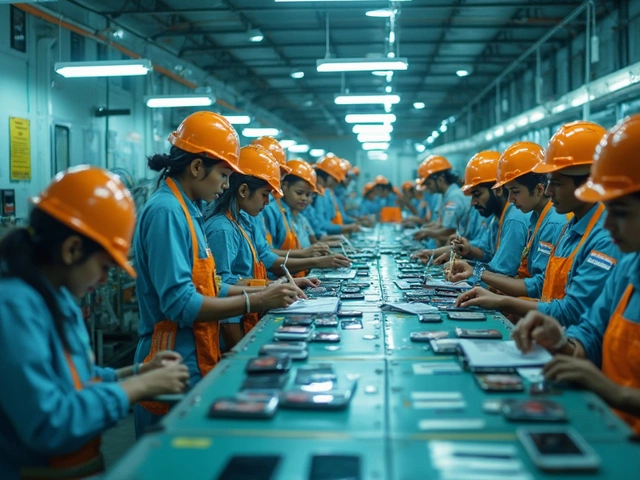If you’ve ever tried hunting for a fancy imported SUV or a quirky sports car in India, you’ve probably realized not every car comes with a ‘Made in India’ tag. There are some obvious heavyweights missing on Indian assembly lines. Think of Tesla’s Model S, Mazda’s range, or even some Mercedes-AMG models—you’ll only find them as imports.
For anyone dreaming of owning one of these rare rides, knowing what gets built locally—and what doesn’t—can save you hours of research (and a chunk of cash in import duties). The truth is, India has strict rules and big market challenges. Some brands just can’t make the math work for local manufacturing, especially with smaller or niche models.
- Imported Cars You’ll See on Indian Roads
- Why Some Brands Skip Indian Manufacturing
- Popular Models Only Available as Imports
- Tips for Buyers Hunting Non-Indian Cars
Imported Cars You’ll See on Indian Roads
The moment you spot a Porsche 911 cruising in Mumbai or a big Toyota Land Cruiser parked in Delhi, it’s pretty clear—not all cars not made in India are hiding in garages. Some seriously popular models only reach Indian buyers through imports, and there’s a reason these cars turn heads wherever they roll in.
Let’s talk about some models you’ll actually come across:
- Tesla Model S, X, and Y – Tesla makes a ton of headlines, but none of its cars are built here. Every Tesla you spot on Indian roads is a direct import, typically via the private import route. The brand keeps talking about assembling in India, but as of 2025, it’s all imports.
- Toyota Land Cruiser – The Land Cruiser (especially the LC300) is known for its beastly presence, but Toyota doesn’t assemble them locally. If you see one, it’s come by sea or air, never from a local Toyota plant.
- Lexus models – Lexus (Toyota’s luxury wing) is popular with folks who want something different from BMW or Audi. All Lexus cars in India, from the ES to the LX, are fully imported—no local manufacturing.
- Porsche – Whether it’s a Macan, Cayenne or a 911, Porsche only ships in CBU (completely built units). Their exclusivity on Indian roads is because manufacturing here isn’t cost-effective for these low volume luxury machines.
- Mazda – You’re not missing something—Mazda doesn’t have a single car made or even officially available in India, so every one here is an import via a personal or independent importer.
- Mercedes-AMG GT & G-Class – Mercedes does assemble many standard models locally, but anything that’s full AMG (like the GT or the beastly G63) ships in from Germany. These are almost cult favorites among car collectors.
Wondering just how rare these imported cars not made in India are? Here’s a recent data snapshot for 2024’s luxury imports:
| Brand | Imported Units (2024) |
|---|---|
| Tesla | 190 |
| Porsche | 370 |
| Lexus | 224 |
| Mercedes-AMG (CBU) | 148 |
| Toyota Land Cruiser | 109 |
Keep in mind, imported cars face huge import duties in India—sometimes doubling the price you’d pay abroad. That’s why most people just window shop. But for those who want something unique and have deep pockets, these imported cars are the only way to go.
Why Some Brands Skip Indian Manufacturing
You’ll notice certain cars not made in India aren’t just a coincidence. Building cars here takes more than just interest—it's all about business sense, rules, and timing. Some companies crunch the numbers and just don’t see a profit, especially with high-end or niche models.
One big wall is India’s import tax policy. If a brand sets up shop locally, costs go down, but for smaller luxury brands or those with low demand, it’s not worth the massive investment. Let’s say you want to bring a Porsche Taycan into India—it’ll land with a big import duty, making it almost double the price compared to Europe or the US.
Then comes the headache of local regulations. Safety and emission standards keep changing, so companies have to put extra money into beefing up their international models just to meet Indian rules. Plus, there’s also the hassle of jumping through state-by-state tax rules and licensing paperwork.
Check out some of the main reasons brands skip local automobile manufacturing India plants:
- Low sales projections: Small market size doesn’t justify a factory.
- Steep investments: Setting up a plant costs a fortune—especially for high-tech or electric models.
- Changing regulations: New safety and emission rules pop up all the time.
- Complicated supply chains: Parts may not be made locally, so everything has to be shipped in.
- Focus on other markets: Some brands prefer to stick to regions where their models already do well.
Here’s a sneak peek at how India stacks up against some other countries when it comes to luxury car production:
| Country | Popular Luxury Brands Locally Manufactured | Commonly Imported Models |
|---|---|---|
| India | BMW, Mercedes-Benz (select models), Audi | Tesla, Lexus, Porsche, Mazda |
| Germany | Mercedes-Benz, BMW, Audi, Porsche | Mazda, Lexus |
| Japan | Lexus, Toyota, Honda, Nissan | Mercedes-AMG, Ferrari |
This gap in imported cars is why you’ll find more buzz around certain models at niche car meets than at your local dealership. And unless these brands see a spike in demand or a major rule change, they’ll probably keep skipping Indian assembly lines.

Popular Models Only Available as Imports
If you look around, you’ll see plenty of imported cars cruising on Indian streets—cars you just can’t get from Indian factories. These aren’t just wildly expensive supercars, either. There are practical models, sporty SUVs, and even electric cars on this exclusive list.
One big name missing from Indian plants is Tesla. The Model S, Model X, and even the Model 3 are only available as imports. There’s plenty of talk about local assembly, but nothing’s happened yet. Another example? Mazda. Not a single Mazda is manufactured or even assembled in India. If you spot a Mazda CX-5 or a 3 sedan, that’s definitely an import.
Some luxury brands play it both ways—Mercedes-Benz and BMW make certain cars here but ship their top-end models as CBUs, meaning they’re fully built overseas and brought in. Want a Mercedes-AMG G63 or a BMW M8? Only imports. Even with Range Rover, the regular Range Rover (full-size) isn’t made in India—it’s imported, unlike some smaller Land Rover models that get assembled in Pune.
Take a look at how some well-known models are brought in:
| Imported Car Model | Brand | Type |
|---|---|---|
| Model S, Model X | Tesla | Electric |
| CX-5, Mazda 3 | Mazda | SUV/Sedan |
| AMG G63 | Mercedes-Benz | Luxury SUV |
| BMW M8 | BMW | Sports Coupe |
| Range Rover (full-size) | Land Rover | Luxury SUV |
| Volkswagen Touareg | Volkswagen | SUV |
The biggest reason? These models are either too expensive, too niche, or too complicated for mass production in India. The market just isn’t big enough for companies to invest in a local assembly line for a handful of buyers per year. So if you spot one of these beauties, you can bet someone jumped through a bunch of hoops—and likely paid almost double the car’s original price in import taxes.
If you crave one of these cars not made in India, factor in wait times, after-sales support, and the jaw-dropping costs. For car buffs, that exclusivity is half the fun—just be ready for the paperwork.
Tips for Buyers Hunting Non-Indian Cars
So you’re set on a car not made in India? You’re not alone. Tons of Indian car fans want something different, but buying imported cars means you’ve got to be smart and careful. Here’s how you can get it right the first time, avoid major headaches, and dodge common pitfalls.
- Check Import Duties and Final Costs: Imported cars get slapped with huge taxes in India. Expect import duties to go as high as 100% on most cars. That snazzy Mazda MX-5 or Tesla Model 3? It could cost double—or even triple—compared to global prices.
- Look Up Homologation Rules: The Indian government doesn’t just let any car roll onto the roads. Your car needs to meet local safety and emissions rules. Most luxury imports—think Porsche or Mercedes-AMG—will be pre-approved. For more exotic brands, factor in both time and cost for approval.
- Pick Reliable Importers or Dealers: Avoid back-alley deals or so-called ‘grey market’ sellers. Always work with ARAI-approved importers or authorized showrooms, especially for imported cars with limited after-sales support.
- Know Your Service Options: Getting parts for a non-local brand can be a pain. Ask about official service networks or specialist garages before signing anything. Sometimes even regular maintenance can turn into a weeks-long wait for parts to arrive from abroad.
- Work the Paperwork: Paperwork is more than red tape; it's about being road-legal. Make sure to have an import bill, registration, and local RTO clearance. Missing one of these could leave your pricey purchase stuck in customs.
Check out some real numbers to get a sense of the extra costs involved:
| Car Type | Factory Price (USD) | Typical Import Duty (%) | Indian Price (Approx. in INR) |
|---|---|---|---|
| Tesla Model 3 | 40,000 | 100 | ₹60-70 lakh |
| Mazda MX-5 | 28,000 | 100 | ₹40-45 lakh |
| Mercedes G-Wagen | 140,000 | 180 | ₹2.5 crore+ |
One last tip: join online communities for non-local car brands in India. Forums and groups on Facebook, Team-BHP, or Reddit offer priceless first-hand advice. Owners share their real costs, best importers, and even tips on where to get spares and insurance. If you’re serious about a car not made in India, learning from others is the best shortcut.






